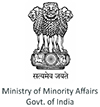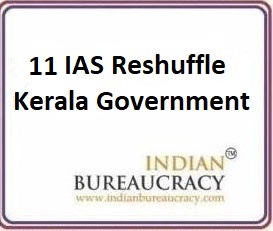The Waqf (Amendment) Bill, 2025 aims to modernize the governance of Waqf properties by addressing key gaps in the Waqf Act, 1995. The proposed amendments focus on enhancing the efficiency of Waqf Boards, updating outdated definitions, streamlining the registration process, and leveraging technology for better management of Waqf records. In addition, the Mussalman Wakf (Repeal) Bill, 2025 seeks to repeal the colonial-era Mussalman Wakf Act, 1923, which is no longer relevant to contemporary India. This repeal aims to bring uniformity under the Waqf Act, 1995, ensure better transparency and accountability, and eliminate confusion caused by overlapping laws.
One of the major challenges in the current system is the irrevocability of Waqf properties. The legal principle “once a waqf, always a waqf” has caused complications and disputes, including high-profile cases like those involving Bet Dwarka. Additionally, legal disputes and mismanagement have plagued the sector for years. Key problems include illegal occupation, unresolved ownership disputes, delays in registration and surveys, and a backlog of litigation. Moreover, Waqf Tribunal decisions are not subject to higher judicial review, reducing transparency and legal accountability.
The issue of incomplete Waqf property surveys is another critical concern. Several states like Gujarat and Uttarakhand have not initiated surveys, while others such as Uttar Pradesh are facing long delays due to poor coordination between departments and lack of expertise. There have also been reported instances of misuse of Waqf laws. Section 40 of the current Act has often been used to classify private properties as Waqf, causing legal battles and social tensions. Data from only 8 out of 30 states shows that 515 properties have been declared Waqf under this section.
There are also constitutional concerns. Since the Waqf Act applies exclusively to Muslims, a Public Interest Litigation (PIL) in the Delhi High Court has raised questions regarding its constitutional validity. The Court has sought the Centre’s response on this issue, further intensifying the need for reform.
The Waqf (Amendment) Bill, 2025 introduces significant changes. The Act will be renamed the Unified Waqf Management, Empowerment, Efficiency, and Development Act, 2025. It restricts Waqf formation to formal declaration or endowment, eliminating formation by user. Donors must be practicing Muslims for at least five years and must own the property. Provisions have been added to ensure that waqf-alal-aulad (family waqf) cannot deny inheritance rights to female heirs.
The Bill also clarifies that any government land wrongly identified as Waqf will revert to government control, with the Collector resolving disputes and reporting to the state. The power to determine Waqf property will no longer lie with Waqf Boards. Instead, state revenue laws will guide surveys, which will now be overseen by District Collectors. The Bill also updates the composition of the Central Waqf Council, requiring the inclusion of two non-Muslims, two Muslim women, and allowing MPs and judges—regardless of religion—to serve. Similarly, the composition of Waqf Boards will be diversified, with mandated representation from Sunnis, Shias, backward class Muslims, and minority sects like Bohras and Agakhanis. Two non-Muslims and two Muslim women must also be included.
Waqf Tribunals will now be chaired by sitting or former District Court judges, supported by senior government officers, and the earlier requirement for a Muslim law expert has been removed. Significantly, decisions of the Tribunals will no longer be final. Appeals can be filed in High Courts within 90 days, which is a vital step toward restoring judicial oversight.
The Bill also strengthens the powers of the central government, allowing it to regulate Waqf property registration, audit accounts via the Comptroller and Auditor General (CAG), and monitor proceedings of Waqf Boards. Furthermore, the Bill allows for separate Waqf Boards not only for Sunni and Shia sects but also for Bohra and Agakhani sects, depending on the composition of Waqf holdings in a state.
The Waqf (Amendment) Bill, 2025 is a comprehensive attempt to overhaul the existing Waqf management framework in India. It addresses systemic issues such as lack of transparency, legal ambiguities, and inefficient administration. By introducing judicial review, empowering government oversight, reforming Waqf Board structures, and ensuring inclusivity through the addition of non-Muslim and women members, the Bill represents a significant step forward in making Waqf governance more accountable, inclusive, and aligned with modern legal and administrative standards.





